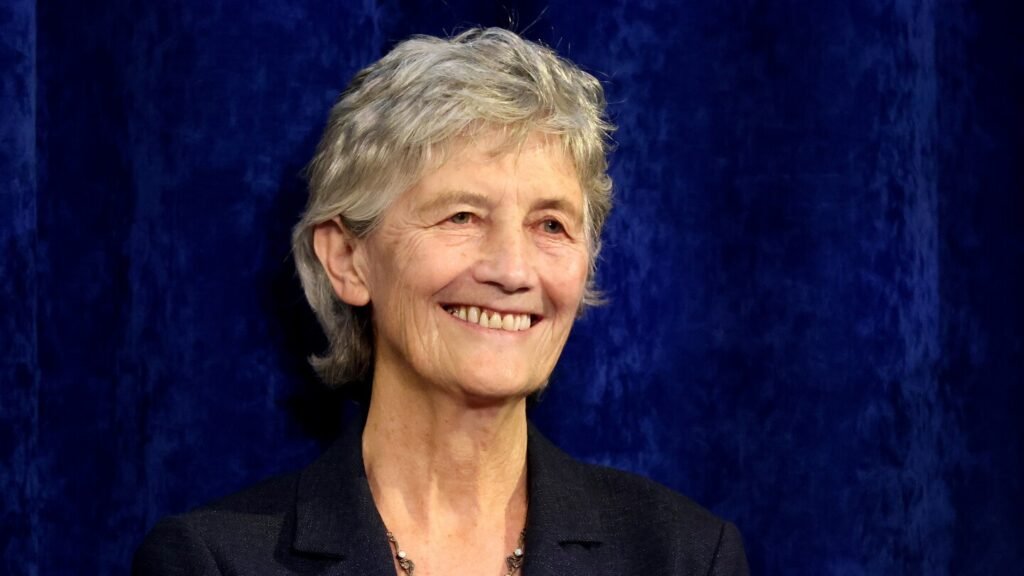Catherine Connolly: Ireland’s New President Championing Inclusivity and Social Equality
LONDON (AP) — Catherine Connolly has emerged as Ireland’s new president after a resounding victory that positions her at the forefront of the nation’s political landscape. Earning 63% of the vote in a landmark election, the independent lawmaker is poised to take office for the next seven years, breaking through the traditional political barriers with a progressive agenda.
A Resounding Victory
In a decisive electoral outcome on Saturday, Connolly triumphed over her center-right opponent, Heather Humphreys, a former Cabinet minister. Her success comes on the heels of robust support from left-leaning opposition parties, notably Sinn Féin, which united behind Connolly in a bid to challenge the existing political order. This coalition marks a transformative shift in Ireland’s political dynamics, inviting expectations of a vocal presidency ready to confront the center-right government on critical national issues.
The Role of the Irish President
While the presidency in Ireland is largely ceremonial and devoid of executive powers, it offers a prominent platform for representing the country globally and acts as a unifying voice on pivotal matters. Catherine Connolly succeeds the popular Michael D. Higgins, renowned for his outspoken stance on issues such as the war in Gaza and NATO funding. Connolly has pledged to be “an inclusive president” who will advocate for diversity and serve as “a voice for peace,” setting the tone for her term.
Catherine Connolly: A Background of Resilience and Advocacy
Born into modest circumstances as one of 14 siblings in a social housing community in Galway, Connolly’s journey has been marked by both struggle and achievement. Orphaned at a young age, with her mother passing when Connolly was just nine, she was raised by her father, a shipyard worker. Overcoming these early adversities, Connolly carved a career in law and clinical psychology before entering politics, where she quickly gained prominence.
Since her election to the Irish Parliament in 2016, she has served three terms representing Galway West, and in 2020 became the first female deputy speaker of the lower house. Her political debut occurred when she was elected to Galway City Council as a member of the Labour Party in 1999, later serving as the city’s mayor.
Advocating for Palestinians and Critiquing EU Policies
Catherine Connolly is known for her unapologetic stance on international issues, particularly her outspoken support for Palestinian rights amid the ongoing Gaza conflict. In September 2023, her comments regarding Hamas received widespread scrutiny; the Irish Prime Minister, Micheál Martin, criticized her for not condemning the militant group’s actions strongly enough. Despite the backlash, Connolly maintained that she condemned Hamas while also criticizing Israeli actions in Gaza, which she described as genocidal.
Furthermore, Connolly has expressed deep reservations about the European Union’s militarization following Russia’s aggression in Ukraine. Drawing provocative historical parallels with Nazi-era armament, she argues that such developments threaten Ireland’s tradition of military neutrality and requires public discourse, including a referendum on changes to the deployment rules for Irish troops abroad.
A Vision for the Future
Catherine Connolly’s presidency promises to resonate particularly with younger voters, given her focus on social equality and inclusivity. In televised presidential debates, she articulated her respect for the presidency’s limitations while emphasizing that she would speak out when necessary.
“We can shape a new republic that values everybody, that champions diversity and embraces our shared identity, including our Irish and English languages and the diverse communities that enrich our society,” she stated in her acceptance speech at Dublin Castle.
Conclusion
Catherine Connolly’s inauguration represents a notable shift in Ireland’s political atmosphere, signaling the potential for a more progressive and inclusive national dialogue. Her tenure, propelled by the support of leftist coalitions and a commitment to addressing pressing issues, is positioned to leave a lasting imprint on both domestic and international fronts.
As Ireland navigates its future, the new president’s dedication to advocating for social justice and examining Ireland’s role on the global stage will be pivotal in shaping the nation’s identity and policies in the years to come.


